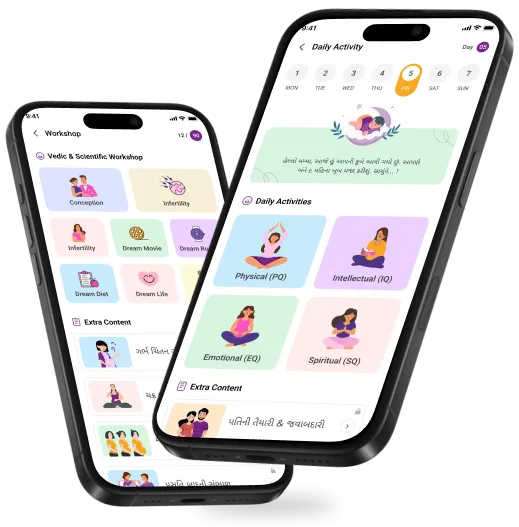Hey there, beautiful moms and mom-to-be!
Today, let’s explore the wonderful world of pregnancy. And let me tell you, it is filled with unexpected twists, turns, and a whole lot of love.
Welcome to pregnancy! You're craving sweets, but are they okay for your baby? Let's find out together. We'll talk about how much sugar is safe during pregnancy. Join us on this journey to keep you and your baby healthy while satisfying those sweet cravings.
Imagine this: You're expecting a beautiful bundle of joy, and you want to do everything right for your baby's health. But in all this excitement, you find yourself craving sugary treats. Let's explore the sweet truth about sugar intake during pregnancy and how to find the right balance for you and your little one.
Visualize this: You're sitting in your kitchen, surrounded by delicious snacks and desserts. The craving to eat sugary foods is strong, but you stop to think about the effects it might have on your baby. Is there a way to satisfy your sweet tooth without harming your pregnancy?
Myth or Fact?

I ate a lot of sugar during pregnancy. Will it affect my baby’s health?
Many expectant mothers find themselves consuming more sugary foods than usual during pregnancy. It could be due to hormonal changes or simply cravings, but it's essential to understand how excessive sugar intake can affect both you and your baby.
Does having too much sugar during pregnancy affect the baby?
Consuming too much sugar during pregnancy can have several negative effects on your baby's health. It increases the risk of gestational diabetes, which can lead to complications during pregnancy and delivery. Additionally, high sugar intake may contribute to excessive birth weight, which can increase the risk of obesity and other physical and mental health issues later in life.
What are the side effects of sugar during pregnancy?
Excessive sugar intake during pregnancy can also lead to other side effects, including increased risk of preeclampsia, gestational hypertension, and preterm birth. It can also affect your baby's development and increase the likelihood of childhood obesity and type 2 diabetes.
Beware Of Sugar

Within 9 months of pregnancy, women have to go through cravings many times, during which time they may feel like eating sour and sometimes sweet food. Most women may desire to eat pickles, ice cream, chocolate or something spicy during their pregnancy. But consuming too much sweets during this period can harm you and your unborn child. Many studies also show that eating too many processed or baked sweets can increase your risk of problems like gestational diabetes in women.
Eating too much sugar during pregnancy symptoms: Some common symptoms of consuming too much sugar during pregnancy includes excessive thirst, frequent urination, fatigue, and blurred vision. If you experience any of these symptoms, it's essential to consult your doctor for further guidance.
Normal blood sugar levels during pregnancy chart: Maintaining normal blood sugar levels during pregnancy is crucial for both your health and your baby's development. Here's a chart outlining the recommended blood sugar levels for pregnant women:
- Fasting blood sugar level: 95 mg/dL or less
- 1 hour after meals: 140 mg/dL or less
- 2 hours after meals: 120mg/dL or less
What are gestational diabetes levels 2 hours after eating?
If you've been diagnosed with gestational diabetes, your doctor may recommend monitoring your blood sugar levels 2 hours after eating. The target range for blood sugar levels in this case is typically 120 mg/dL or less.
1-hour glucose tolerance test - what is pregnancy normal range?
During pregnancy, you may undergo a glucose tolerance test to screen for gestational diabetes. A normal range for blood sugar levels 1 hour after consuming a glucose solution is below 140 mg/dL.

How to lower blood sugar during pregnancy?
If you're struggling to keep your blood sugar levels in check during pregnancy, there are several steps you can take to help lower them. These include:
- Following a balanced diet rich in fruits, vegetables, whole grains, and lean proteins
- Monitoring your carbohydrate intake and opting for complex carbohydrates over simple sugars
- Engaging in regular physical activity, such as walking to help regulate blood sugar levels
- Taking prescribed medication or insulin as directed by your healthcare provider
How to reduce sugar level in pregnancy home remedies?
In addition to following a healthy diet and lifestyle, there are some home remedies that may help lower blood sugar levels during pregnancy. These include:
- Drinking plenty of water to stay hydrated and flush out excess sugar from your system.
- Add cinnamon, fenugreek, and bitter gourd into your diet, as these foods may help regulate blood sugar levels
- Eating smaller, more frequent meals throughout the day to prevent rise in blood sugar
What are signs of gestational diabetes in the third trimester?
In the last months of pregnancy, watch out for signs of gestational diabetes. These include feeling very thirsty, needing to pee more often, and feeling tired. If you notice any of these, talk to your doctor right away. They can help you manage gestational diabetes and keep you and your baby healthy.
What happens if gestational diabetes is not controlled?
If gestational diabetes is not controlled, it can lead to various complications for both the mother and the baby. Uncontrolled gestational diabetes increases the risk of high blood pressure, preeclampsia, and cesarean delivery for the mother.
It can also lead to the baby growing too large, which increases the risk of birth injuries during delivery. Additionally, uncontrolled gestational diabetes raises the baby's risk of developing low blood sugar after birth, breathing difficulties, and obesity later in life.
{{cool-component}}
Effects of Excessive Sugar Intake
1. Obesity / Weight Gain
Probably every one of you knows that too much sugar can cause obesity. But excessive consumption of sweets or sugar during pregnancy increases the risk of obesity in both you and the unborn child. Evidence of this has also been found in some studies, that due to excessive consumption of sugary foods and beverages in pregnant women, there was a possibility of obesity in their child till the age of about 7 years. Not only this, its effect was visible on the mother also.
2. Allergy
Consuming too much sugar can increase the risk of asthma and allergies in children. A 2017 study conducted at Queen Mary University also confirmed that children whose mothers consumed excessive sugar during their pregnancy were more likely to have allergies and asthma. This happens because the amount of fructose consumed by the mother affects the immunity of the child and due to this, allergies and asthma start developing in the child. Apart from this, it also has an impact on the development of the child's lungs.
3. Poor Memory Power
Some studies have also found that women's high sugar intake during pregnancy is linked to their child's learning ability and memory.
Consumption of soda drinks etc. is also linked to poor cognitive skills in children. Consumption of soft drinks has a very bad effect on the brain development of the fetus.
4. Other Potential Risk
Excessive consumption of sugar during pregnancy also increases the risk of heart diseases in children. After birth, problems related to metabolism may arise in children.
Therefore, it's important to be conscious of your sugar intake. During pregnancy, try to stick to the usual maximum daily limit of sugar for adults, this is no more than 6-7 teaspoons (25-30 grams) of sugar. It's ideal if you entirely give up added sugar.
Remedy: To reduce your sweet cravings, you can take fruit juice and fruit shake. If you have a strong craving for ice-cream or chocolate, then eat them in moderation. Instead of sugar, you can use powdered sugar in appropriate quantities. Or you can use natural sugar sources like banana, custard apple, dried grapes, honey etc..
{{cool-component-1}}
Conclusion
As we wrap up our sweet journey together, remember this: pregnancy is a time to cherish and nurture both yourself and your baby. By finding the right balance with sugar intake, you're setting the stage for a healthy start for your little one. So, keep listening to your body, those cravings in moderation, and enjoy every moment of this incredible experience. Here's to you, supermom, and the beautiful journey ahead!
Disclaimer: This blog is correct as per the writer's knowledge. This is not medical guidance. Follow as you are responsible for.












.webp)

.webp)





